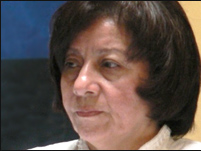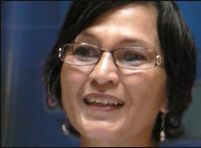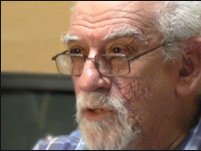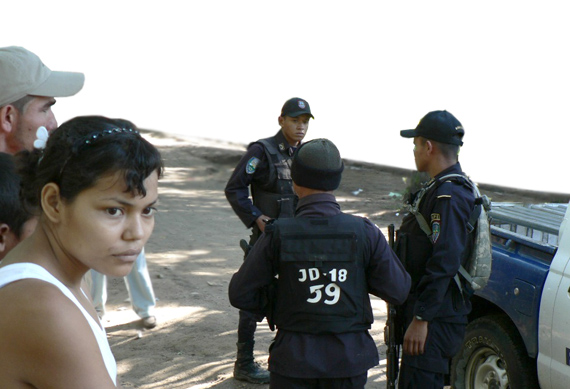|
The
international organizations that earlier this year conducted a mission to
investigate the human rights situation in Bajo Aguán have now released their
final report to the European Parliament and Honduran society. From February 26
through March 4, 2011, the mission gathered enough solid evidence to reveal the
persistence of selective murders, repression and impunity in the region and
issue recommendations to national authorities and the international community.
The
serious human rights abuses in Bajo Aguán were once again denounced and brought
to the attention of international and national opinion.
| |
|
| |

Bertha oliva |
| |
|
At a
press conference held in Tegucigalpa, national human rights organizations1
and Rel-UITA (IUF Latin America), in representation of the
organizations and networks that participated in the International Mission,2
released the contents of the Mission’s final report.
They
denounced the systematic repression against peasant families demanding access to
land and a decent life, the concentration of the best lands in the hands of a
few large landowners and palm producers, and the widespread impunity in the
region.
“Peasant activists have had their rights continuously trampled and abused, with
grave violations of their rights to life, physical integrity, freedom and
personal safety. They’ve also had their rights to food, health, housing and
education ignored, and none of the crimes committed are being duly investigated
and punished,” the press release reads.
According to the final report, from January 2010 to June 2011, 32 peasant
activists were murdered, nine of them in the past three months alone. In
addition, there has been a multiplication of the number of assaults, kidnappings
and violent land expulsions “with the direct involvement of public and private
security forces.”
| |
|
| |

Gilda Rivera |
| |
|
“Honduras
must continue to investigate and report the crimes that are being committed in
Bajo Aguán. With this report, the members of the International Mission
are significantly advancing the work began earlier this year and giving wider
international visibility to the violations denounced,” Bertha Oliva,
coordinator of the Commission of Relatives of the Detained-Disappeared in
Honduras (COFADEH), said.
Gilda Rivera,
director of the Center for Women’s Rights (CDM), explained that the final
report “is backed by solid facts and is the result of in-depth field work
conducted by the International Mission.”
Gilberto Ríos,
FIAN Honduras executive director, expressed the need to address the root
causes of the violence and human rights abuses in Bajo Aguán. “There are cases
from at least 11 land conflicts that are still unresolved. We need to develop
public policies that will bring about a true land reform and will guarantee
access to land for peasant families,” Ríos said.
Recommendations
| |
|
| |

Gilberto Ríos |
| |
|
The
International Mission called on national authorities to investigate
the murders and other crimes committed in the region and bring the perpetrators
to justice, and to act immediately to put a stop to the repression and violence
against the peasant movement.
It
also demanded observance of legal provisions and land conflict-related
agreements.
Moreover, it urged the international community to be more alert to the human
rights situation in Bajo Aguán and take a more active stance.
European Parliament concerned
The
final report was also presented to several bodies of the European Parliament.
According to
members of a delegation of the International Mission that traveled to Brussels,
the report was well-received by the European Parliament’s Subcommittee on Human
Rights and by representatives of the European Council and the EU Foreign
Service.
Participants at the public hearing held acknowledged the importance of
monitoring the situation of violence and impunity in Bajo Aguán, a situation
that has become an issue of concern and consideration in the European
Parliament.
The
vice-chair of the Subcommittee on Human Rights,
Laima Andrikiené, and European legislator Richar Howitt
showed great concern over “the high rate of impunity in the country and the
difficulties in protecting human rights in Bajo Aguán.”
Lastly, the members of the International Mission asked Emine Bozkurt,
head of the European Delegation for Relations with Central American Countries,
to include Bajo Aguán in the delegation’s next visit to Honduras,
scheduled for October.

|